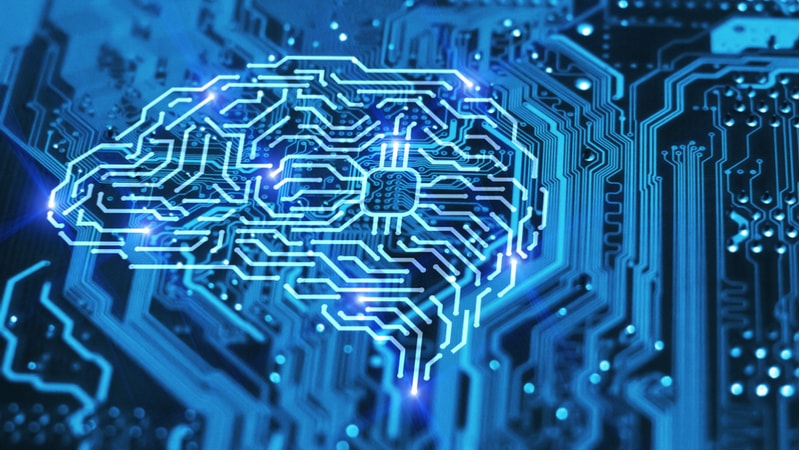
A principal author of Senate legislation that would pump $2.2 billion of Federal funding into development of artificial intelligence (AI) technologies over the next five years said last week that investment would help a host of industry sectors including healthcare, energy, and agriculture.
Sen. Martin Heinrich, D-N.M., speaking at an event organized by Politico, said his bill – the Artificial Intelligence Initiative Act – would provide that funding to establish a Federal government initiative to speed research and development on AI “for the economic and national security of the United States,” among other purposes.
He said such an effort is necessary “to help ensure our continued global leadership” in AI tech development. “It’s about taking many of the existing entities we have, making sure they are focused on this issue, have resources, and are coordinated,” the senator said.
“We are not going to be able to compete with China on a raw dollars point of view,” he said, speaking to substantial investments by the Chinese government in AI tech. But, he argued, the U.S. does a much better job at coordinating action between the government and the private sector, and that his legislation would help that effort.
And the payoffs to a bigger Federal-industry push on AI would be many, Sen. Heinrich said.
On the healthcare front, the senator said there are “enormous mountains of data sitting in non-digital formats,” including pathology slides, that could be used fuel AI medical tech including new medicines and diagnostic tools.
In that regard, Sen. Heinrich said overcoming the hurdle of “unstructured” or non-digitized data is vital to fueling use of AI in the healthcare and other sectors. “Data quality and data compatibility and making sure data is machine-ready . . . to avoid jumping through manual hoops to use that data, all of that is going to be huge,” he said.
Other sectors that stand to benefit from AI include the agriculture and energy sectors, which could both become more efficient, he said.
On the agriculture front, Sen. Heinrich said AI can benefit from farmers by giving insight into what crops to plant, and can give the government a better view into national crop yields. “There is a whole huge space out there” in the agriculture sector that can benefit, he said.
Likewise, for the energy sector Sen. Heinrich said AI could allow utilities “to manage the grid in a completely different way” by helping to better manage peak power demand. “We have the ability, but are not doing it yet, to better manage distributed resources . . . over the course of the entire grid.”
A lot of policy-setting work at the Federal level still remains to be done for AI to reach its potential, the senator said.
He spoke generally of setting “policy guardrails” for AI, but focused more precisely on setting policy that determines that data can be used for AI, and how to protect personal data from being used.
“We have to set the policy guardrails,” he said, “before we have some event that sets us back for years.”
“In the U.S. and Europe, public sentiment really matters, and not making big mistakes that set you back for years,” he said. “If we get it right on the front end, it prevents the type of backlash from the public that could set us back.”
“Data bias is something we really have to pay attention to,” the senator added. “If you are going to use public data for public purposes, you shouldn’t have a ‘black box’ system” for AI that remains opaque as to how it works. “We need to know what AI is producing, and why,” and “make sure that bias is not built into that based on the data sets,” he said.
